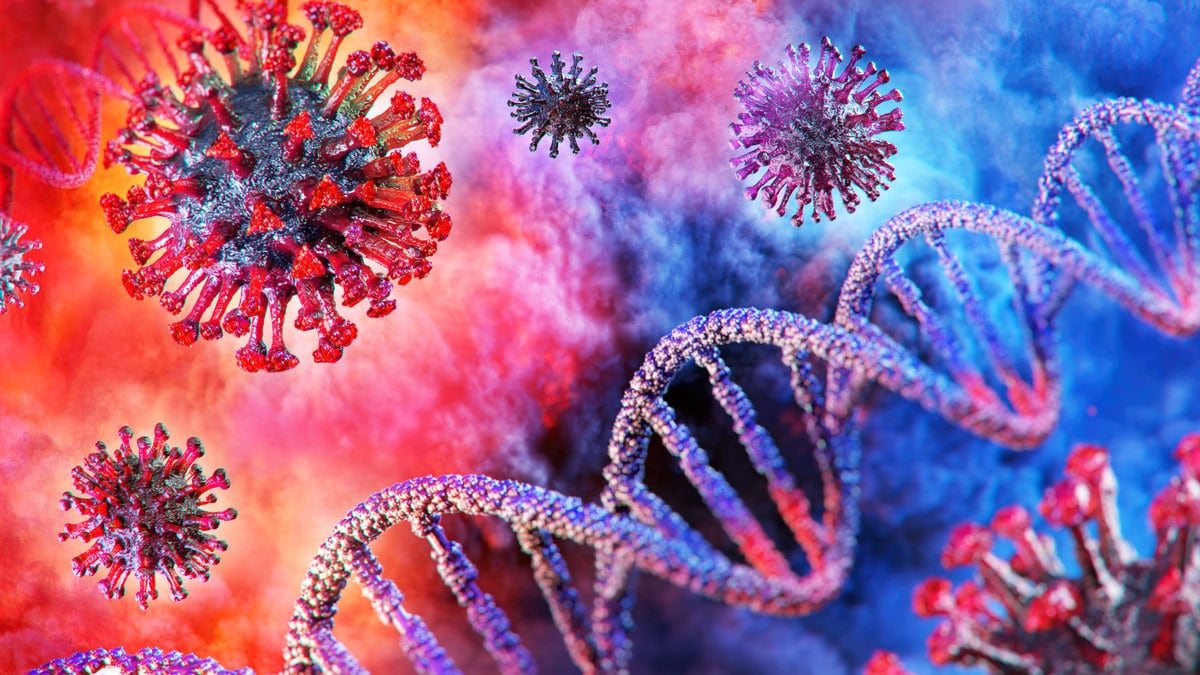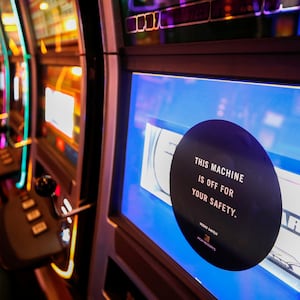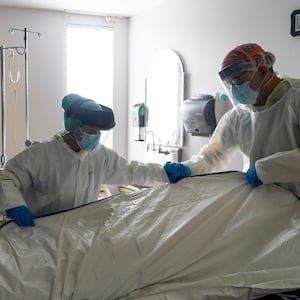As the novel coronavirus continues to rage across the United States, health-care professionals are now warning that prolonged fear of the pandemic can also prove deadly.
In an article published Wednesday in the Journal of the American Medical Association, several doctors associated with Tufts Medical Center in Massachusetts analyzed the possible effects of coronavirus-related fears on those with cardiac diseases, finding that patients with potentially life-threatening conditions are avoiding medical treatment, while others are turning to unhealthy habits for solace.
“While early fears of widespread death and overwhelmed hospitals have played an important role in sounding the alarm about this pandemic and motivated important social-distancing measures, these fears are also causing substantial harm,” the paper states.
To date in the U.S., at least 142,090 people have died and 3.9 million more have been infected with the extremely contagious virus, as top infectious-disease experts warn that the nation is still “knee-deep” in the first wave of the outbreak. As more than a dozen states have seen an explosion in new cases and hospitalizations in the last month, public-health officials continue to warn residents of the dangerous consequences of not following the recommended guidelines, including wearing face masks and maintaining social distancing.
But while the Tufts doctors stressed the importance of telling the public to stay at home, they urged health officials to encourage patients to still seek treatment for life-threatening ailments. For instance, some patients suffering from heart attacks might be avoiding the hospital out of fear of contracting the virus there.
Recent data states that at least nine centers across the U.S. have recorded a 40 percent decrease in some cardiac treatments, such as catheterization laboratory activation, suggesting some people are dying at home rather than seeking medical help.
Immad Sadiq, a cardiovascular interventionist at the Hartford Healthcare Medical Group, has seen firsthand that fear of the pandemic can be deadly. In April, the Connecticut doctor revealed that his 50-year-old cousin died from a heart attack at home after refusing to seek medical treatment.
“At home. Alone,” the doctor tweeted on April 22. “Not COVID positive but COVID phobic. COVID thanatophobia. That prevented him from seeking prompt care. RIP brother. You’ll always be missed.”
This fear associated with COVID-19 is “having the direct outcome of decreasing the use of life-saving evidence-based treatments,” the paper states, noting that some patients with heart conditions in New York City have opted to avoid the hospital instead of seeking treatment. The paper adds that emergency calls for cardiac arrests in New York City have “risen substantially in the weeks since COVID-19” overtook the city.
“Disasters increase the population risk of cardiac events,” the paper states. “Widespread fear and emotional stress are known to directly precipitate acute coronary syndromes through abnormalities of autonomic tone that can increase platelet aggregation and rates of plaque rupture.”
Stress can also lead to people adopting unhealthy coping mechanisms, such as smoking and a more sedentary lifestyle, the paper notes.
Pointing to the increased rate of hospitalization for heart attacks at Tulane Health Services Center in Louisiana after Hurricane Katrina, the doctors argue that the growth rate for these cases increased “threefold” over a one-year period after the natural disaster. The increased rate of heart attacks in New Orleans persisted for years after the hurricane.
“If the COVID-19 pandemic presents a similar hazard to the entire nation, it is likely that we will see 1 million to 2 million additional coronary events that are directly attributable to the current crisis (representing a twofold to threefold increase over 2019 event rates),” the article states. “This increase, coupled with worse clinical outcomes when patients avoid seeking effective care, creates a double hit from this pandemic in which morbidity and mortality associated with the cardiac disease might well overtake the risks directly linked to the virus itself.”
To combat this potentially fatal fear, the JAMA paper suggests “recalibrating” the mindset behind the deadly virus. While the risk of contracting the coronavirus at the hospital is less than 1 percent, it is also the same mean risk of death from the virus—and thus the probability of both happening to a resident are highly unlikely.
In contrast, the paper notes, an individual dying from myocardial infarction after avoiding treatment is greater than 30 percent, “with the risk decreasing to approximately 5 percent with revascularization and modern, evidence-based pharmacotherapy and critical care.”
“The true risk to patients is associated with both the virus and (somewhat paradoxically) the current mitigation strategies that, although they are appropriate, appear to discourage patients from seeking the very care that saves lives,” the paper states.
The Tufts doctors suggest changing public-health messaging to encourage the use of appropriate medical care “even while encouraging the public to otherwise stay at home.” The paper states that “overblown medical depictions of the hospital as a war zone” also hurt how residents perceive medical treatments.
“While we continue to care for the patients with COVID-19 and this disease dominates institutional planning, it is essential that hospitals shed the perception of being war zones and redefine themselves as safe zones,” the doctors argue. “To minimize the negative outcomes of this pandemic, we must keep patients from dying of fear—both of the pandemic and their fate in the hands of medical institutions.”








